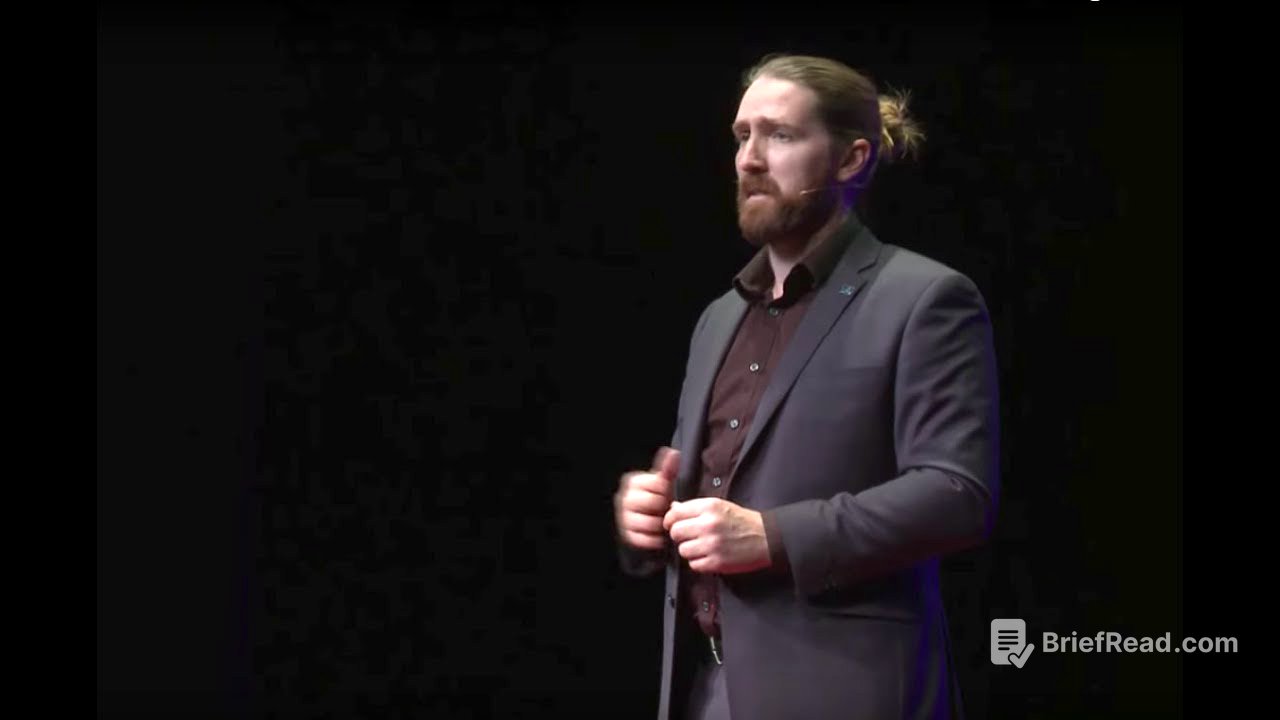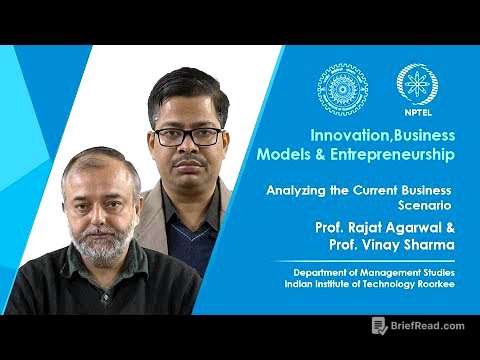TLDR;
This TEDx talk advocates for modernizing democracy through digital technology to increase citizen participation. It highlights the regression from the original ideals of democracy, emphasizing the need for greater citizen involvement and leveraging digital tools for a more participatory and responsive government. The speaker outlines three key actions: believing in the possibility of democratic change, embracing digital democracy, and becoming active, engaged citizens.
- Democracy should evolve with time, science, and culture.
- Digital technology can modernize democracy and increase citizen participation.
- Active citizenry is crucial for a healthy democracy.
Introduction: Digital Democracy [0:19]
The speaker introduces the concept of "Digital of the people, by the people, and for the people," drawing a parallel to Abraham Lincoln's Gettysburg Address. This concept suggests that digital technology can revolutionize and democratize governance. The speaker expresses dissatisfaction with the current state of democracy, where a single paper vote every four years is the extent of citizen participation. The speaker argues that the digital revolution presents an opportunity to revitalize democracy and provide citizens with a greater voice.
The Regression of Democracy [1:31]
The speaker contrasts modern democracy with the participatory democracy of ancient Greece, where citizens actively engaged in decision-making. The speaker argues that modern democracies have regressed from this ideal, both in terms of what citizens demand from their government and what the government demands from its citizens. The speaker urges the audience to demand more from their democracy, pushing for progress, evolution, and modernization to empower the people.
The Need for Change [3:42]
The speaker addresses the question of why democracy needs to change, emphasizing that the price of freedom is eternal vigilance. The speaker notes that as times, cultures, societies, and technologies evolve, so too should democracy. The speaker highlights the disconnection citizens feel from national decision-making, leading to feelings of disregard and exclusion. The speaker warns that failure to modernize democracy can lead to regionalism, insularity, and destructive outcomes, referencing global events as evidence.
Three Steps to Modernize Democracy [6:11]
The speaker outlines three actions to modernize democracy. First, citizens must believe that democracy can and should change, overcoming the perception of it as a fixed entity. Drawing on Thomas Jefferson's belief that laws and institutions must evolve with time, the speaker encourages the audience to be open to change and to recognize the forces that benefit from maintaining the status quo, such as big business, lobbyists, political parties, and the wealthy.
Embracing Digital Democracy [8:26]
The second action is to embrace digital democracy, harnessing the digital revolution to modernize governance. Digital technology can address the challenge of coordination in large populations, overcoming the limitations of indirect democracy. The speaker suggests possibilities such as crowd-sourced legislation, web-based community budgeting, and online voting. The speaker addresses concerns about online voting, clarifying that the goal is to enhance democratic participation, not diminish traditions like the "democracy sausage." The speaker cites examples from Brazil and Seoul, where digital tools have successfully engaged citizens in parliamentary debate and city governance.
Active Citizenry [12:13]
The third action is to be active, activist citizens, focusing on what individuals can do for their democracy. The speaker emphasizes that an active citizenry is democracy's greatest strength, while complacency is its Achilles' heel. The speaker encourages the audience to reject the notion that government is too complex for the people and to resist withdrawing from the political sphere. The speaker suggests writing to politicians to express the belief in evolving democracy and the desire for a greater role in it, advocating for the use of technology in this evolution.
Conclusion: Momentum for Progress [13:34]
The speaker concludes by urging the audience to provide momentum for the positive progress of democracy, empowering people through digital tools. The speaker reiterates the call for "Digital of the people, by the people, and for the people," emphasizing the potential of digital democracy to revitalize citizen participation and government responsiveness.









